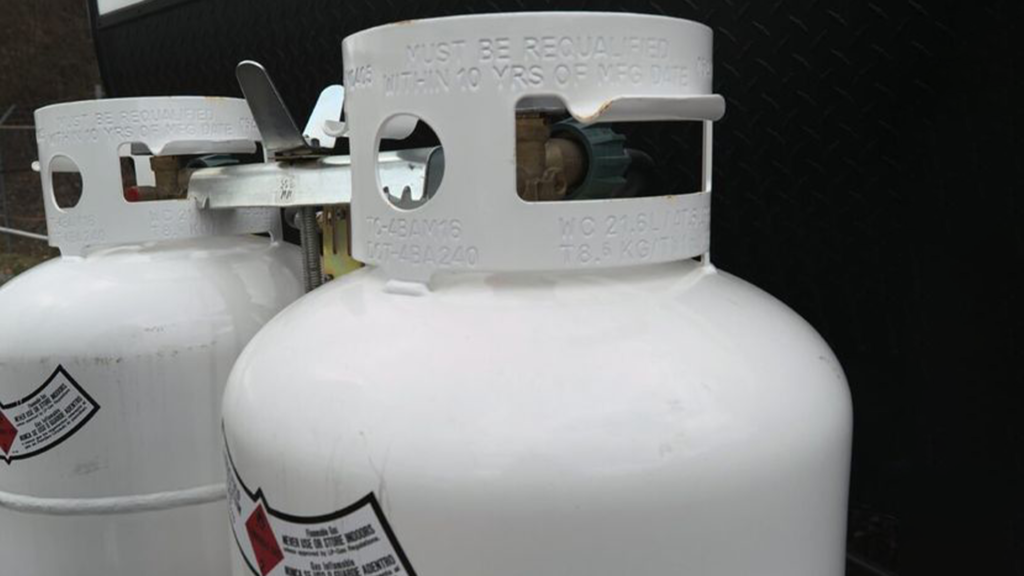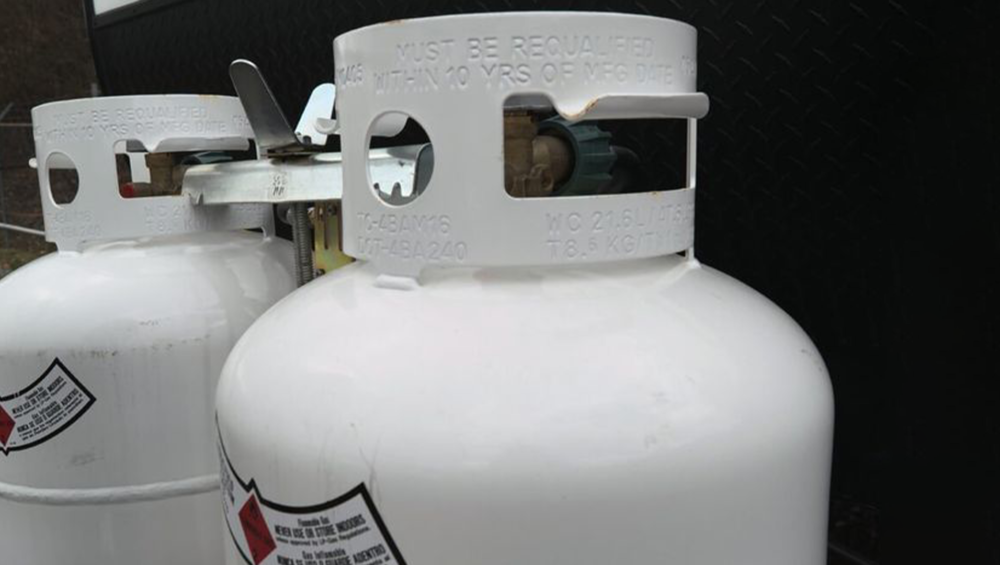If you rely on propane for cooking meals or powering appliances, ensuring your propane tank is in good condition is crucial for safe and efficient usage. Over time, propane tanks can degrade. If that happens, you will be required to requalify or replace your tanks. Let’s see the signs that indicate if your propane tank may need requalification and what steps you should take to address the issue promptly.

Understanding Propane Tank Requalification
First, it is important to understand what propane tank requalification is. Propane tanks are typically requalified every 5, 7, 10, or 12 years, depending on the tank’s construction and the regulations in your area. In the requalification process, the propane tanks are thoroughly inspected and tested to ensure that they are safe to use. The procedures used for requalification are performed through visual inspection, hydrostatic testing, and ultrasonic testing. The type of method used depends on their type and age.
Signs Your Propane Tank Needs Requalification
- Expiration Date: Check the expiration date on your propane tank. If it has exceeded its requalification date, it is now time to have the propane tank inspected.
- Visible Damage: Inspect the exterior of your propane tank for any signs of damage like dents and rust. These can weaken the tank and indicate the need for inspection.
- Gas Leaks: If you notice the smell of rotten eggs or sulfur near your tank area, it’s critical to address it immediately. Leaks can be a sign of a damaged tank that needs inspection.
- Pressure Issues: Problems with maintaining consistent gas pressure can mean that there is an issue with the tank.
- Age of Tank: Even if your tank appears to be in good condition, older tanks may still need requalification.
- Compliance with Rules: Know about local regulations regarding propane tank requalification. Non-compliance can result in safety hazards and legal issues.
Steps to Take If Your Propane Tank Needs Requalification
- Contact Your Propane Supplier: If you suspect your propane tank needs requalification based on the signs mentioned above, contact your propane supplier. They will assess your tank’s condition accurately with equipment.
- Schedule an Inspection: Arrange for a professional inspection of your propane tank. Depending on various factors, the inspector will recommend the appropriate requalification method.
- Follow Safety Guidelines: While awaiting inspection, you should follow safety guidelines such as keeping the area around the tank clear and avoiding any actions that could cause leaks.
- Consider Replacement: In some cases, like those in which your tank is old or severely damaged, replacement may be a safer option than requalification.
- Stay Updated: Educate yourself about propane maintenance practices to prevent future issues with your propane tank.
Benefits of Regular Propane Tank Maintenance
- Security: When your propane tank is in good condition, the risk of leaks, fires, or other safety hazards is reduced.
- Efficiency: A well-maintained propane tank functions more efficiently, saving you money on fuel costs.
- Compliance: Adhering to safety standards keeps you compliant with regulations and protects you from penalties.
- Relaxed Mind: Knowing that your propane tank is safe to use gives you peace of mind, especially during times when propane usage is higher.
Conclusion
Regular maintenance and timely requalification of your propane tank are important for safety, efficiency, and regulatory compliance. By being aware of the signs and taking prompt action, you can have a reliable propane supply for your home or business. Remember to select a reputable propane supplier to assess and address any issues with your propane tank promptly.





